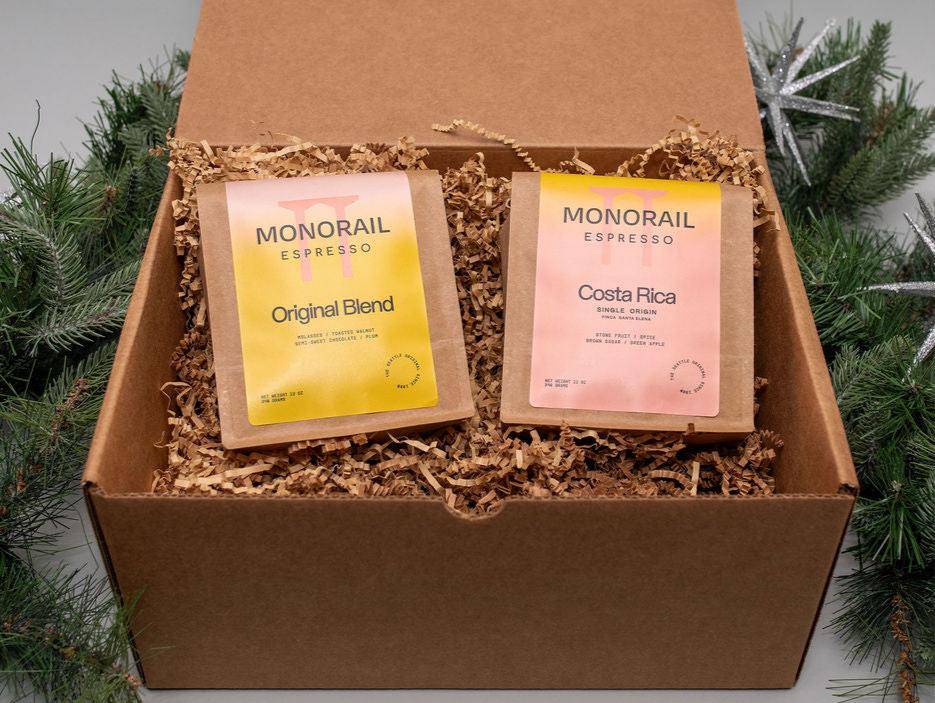SOE Single Origin Espresso – The Ideal Choice for Espresso Lovers
SOE Single Origin Espresso – The Ideal Choice for Espresso Lovers
Blog Article
Comprehending Coffee Beans: the Journey From Espresso to Blended Coffee Beans

The Beginnings of Coffee: An International Point Of View
While you might assume of coffee as a contemporary staple, its origins trace back centuries, linking with cultures throughout the globe. The tale begins in Ethiopia, where legend claims a goat herder called Kaldi discovered the invigorating impacts of coffee beans after observing his goats romping energetically after consuming them. This stimulated interest, resulting in coffee's spread to Arab investors who cherished the made drink. By the 15th century, it reached Persia, Egypt, and Turkey, where coffeehouses came to be social centers for conversation and culture.
As profession routes expanded, coffee made its method to Europe in the 17th century, rapidly acquiring appeal. It transformed from a magical drink right into a daily routine, intellectual exchanges and inspiring gatherings. Each society included its unique spin to coffee prep work, enhancing its background. This international journey highlights just how coffee attaches us, transcending borders and joining diverse customs via a straightforward bean.
Farming and Harvesting of Espresso Beans
As coffee's journey developed, the focus moved to the farming and harvesting of specific bean varieties, specifically those made use of for espresso. You'll discover that espresso beans typically come from Arabica or Robusta plants, each offering unique tastes. The suitable expanding conditions include high altitudes and abundant, well-drained dirt, which improve the beans' quality.
During the harvest, choosing techniques vary. In some areas, employees hand-pick ripe cherries, making certain just the finest fruit mosts likely to handling. In other areas, mechanical farmers are utilized, particularly on larger ranches. Timing is crucial; you wish to collect when the cherries get to peak perfection for maximum flavor.
When collected, the beans are gotten ready for processing, which is vital in identifying their final preference. Understanding the cultivation and harvesting processes offers you insight into what enters into your favorite espresso, improving your admiration for each cup.
Handling Approaches: From Cherry to Bean
Currently that you've discovered harvesting espresso beans, allow's explore how those cherries transform into the coffee beans you like. You'll see how various harvesting techniques impact flavor, complied with by the crucial actions of fermentation and drying out. Finally, we'll damage down the milling and grading process that identifies your coffee's quality.
Gathering Strategies Described
When it comes to coffee, recognizing harvesting techniques is necessary, since they directly impact the taste and quality of the beans you enjoy. There are 2 main approaches: discerning selecting and strip picking. Selective choosing entails hand-picking only ripe cherries, guaranteeing you get the most effective top quality beans. This method typically causes a richer taste account, though it's more labor-intensive. On the various other hand, strip picking ways collecting all cherries at as soon as, no matter perfection. While it's quicker and less expensive, this can result in a mix of flavors, impacting the end product. Ultimately, the choice of collecting method can greatly affect your coffee experience, so it's worth knowing how those beans made it to your mug.
Fermentation and Drying Out
After harvesting, the next action in handling coffee beans play a considerable function fit their flavor. You'll locate that fermentation is essential, as it assists damage down the mucilage bordering the beans, enhancing their taste account. Depending upon the technique, this process can last from a few hours to numerous days, with differing outcomes based on temperature level and moisture.
Sun-drying allows the beans to soak up flavors from the setting, while mechanical drying guarantees regular dampness degrees regardless of weather condition. Appropriate drying out is crucial to protect against mold and maintain the beans' high quality, ultimately influencing your mug of coffee.
Milling and Grading Process
As fermentation and drying out set the stage for taste advancement, the milling and grading procedure assurances that just the most effective coffee beans make it to your cup. This stage entails eliminating the external layers of the coffee cherry, consisting of the parchment and husk. After milling, the beans are sorted by size and weight, ensuring an uniform top quality. You'll find that grading assists recognize flaws and classify beans, which affects flavor and scent. Premium beans obtain a higher grade, causing a richer coffee experience. As soon as graded, the beans await product packaging and delivery, maintaining their distinct features. This meticulous process is essential for providing the remarkable preference you appreciate in every sip of your favored mixture.
Toasting Strategies: Opening Taste Potential
When you roast coffee beans, the method you choose can significantly influence the taste account. Understanding the relationship in between time, temperature, and roasting strategies is key to revealing the possibility of your mixture. Allow's check out how these aspects integrated to produce the perfect cup.
Toasting Methods Discussed
While you may think that all coffee roasting approaches yield the exact same results, the truth is that each method discloses unique taste possibilities in the beans. You can select between approaches like drum toasting, air roasting, or perhaps traditional frying pan roasting. Drum toasting uses a turning drum to evenly disperse heat, boosting caramelization and generating a balanced taste. Air roasting, on the other hand, circulates hot air around the beans, promoting a lighter roast with noticable acidity. Frying pan roasting enables hands-on control but calls for constant interest to prevent burning. Each method has its subtleties, so explore various methods can assist you find the perfect roast that lines up with your taste choices. Enjoy the trip of discovering your optimal mug!

Effect On Taste Profile
Different roasting methods not only influence the process but likewise substantially impact the taste profile of the coffee beans. Dark roasts, on the other hand, bring out bold, smoky flavors, in some cases concealing the bean's special features. Recognizing these subtleties go to my blog assists you appreciate the creativity behind your mug of coffee, improving your total experience with every sip.
Time and Temperature Elements
To release the full taste possibility of coffee beans, both time and temperature level during the toasting procedure play considerable functions. When roasting, you'll locate that greater temperature levels can promptly create flavors, but if you rush it, you could wind up with charred notes. On the other hand, lower temperature levels enable a much more gradual taste growth, showcasing the try this website beans' special qualities.

Timing is just as crucial; prolonging the roast as well long can cause a loss of level of acidity and brightness, while also short a roast could leave the beans underdeveloped. Discovering that sweet place requires method and experimentation. By readjusting these elements, you can reveal the abundant, complex tastes hidden within each bean, producing an absolutely exceptional coffee experience.
The Art of Blending: Crafting Special Coffee Profiles

Start by selecting a base coffee that supplies a strong structure. Then, select corresponding beans to enhance particular flavor notes. As an example, an intense Ethiopian bean can bring fruitiness, while an abundant Brazilian coffee adds body. Testing is vital-- do not be afraid to adjust ratios till you locate your perfect profile.
As you blend, bear in mind that each combination narrates. You're not just making coffee; you're creating an experience. Take your time, taste frequently, and enjoy the trip of uncovering your trademark blend - Single Origin Espresso.
Developing Techniques: How Preparation Influences Taste
Mixing coffee opens up a domain of taste possibilities, however exactly how you brew that mix can substantially influence your final mug. On the other hand, a pour-over highlights the coffee's clarity and illumination, best for showcasing fragile notes.
Coffee, with its high pressure, produces a focused shot that highlights sweetness and crema. If you prefer a lighter mixture, think about a cold brew method; it generates a smooth, less acidic preference.
Inevitably, testing is vital. Changing variables like water temperature level, grind size, and make time can transform your coffee's account. Embrace the art of developing to discover the flavors concealed in your coffee blends. The right method can raise your experience to brand-new heights.
The Future of Coffee: Sustainability and Development
As the coffee sector develops, sustainability and technology are becoming crucial for resolving environmental difficulties and conference customer demands. You'll discover that even more coffee business are taking on environment-friendly techniques, from sourcing beans ethically to executing lasting farming strategies. These shifts not only assist the world yet additionally enhance the high quality of the coffee you appreciate.
You might see advancements like eco-friendly product packaging and water-saving brewing techniques that minimize waste. Advanced modern technology, such as blockchain, is also becoming go right here popular, making certain openness in the supply chain, which permits you to map your coffee back to its beginnings.
Furthermore, purchasing local neighborhoods and supporting farmers with fair trade initiatives promotes a much more lasting coffee community. As you sip your next cup, bear in mind that your choices can add to a brighter future for coffee. By choosing for lasting brand names, you're not simply appreciating a beverage; you're making a favorable effect on the globe.
Often Asked Concerns
What Is the Distinction In Between Arabica and Robusta Beans?
Arabica beans are smoother, sweeter, and have a greater level of acidity, while robusta beans are more powerful, a lot more bitter, and include more high levels of caffeine. When brewing your coffee., you'll discover these differences in taste and scent.
Exactly How Does Altitude Affect Coffee Bean Taste?
Altitude impacts coffee bean taste considerably. Higher elevations create beans with brighter acidity and facility flavors, while reduced altitudes often generate beans that are larger and less nuanced. You'll notice these distinctions in your cup!
What Are the Wellness Advantages of Alcohol Consumption Coffee?
Consuming coffee can boost your power, improve mental emphasis, and even improve physical performance. It's abundant in antioxidants, may decrease the risk of particular diseases, and can advertise a healthier metabolic rate when consumed in moderation.
Can Coffee Beans Be Recycled for Developing?
Yes, you can reuse coffee beans for brewing, yet the flavor could be weak. If you delight in trying out, try reusing them in various means, like cold brews or including in smoothie mixes for an added kick.
Exactly how Should I Shop Coffee Beans for Freshness?
To keep your coffee beans fresh, keep them in an impermeable container in a great, dark place. Prevent revealing them to light, wetness, or warmth, as these elements can swiftly degrade their flavor and aroma.
Recognizing Coffee Beans: the Journey From Espresso to Blended Coffee Beans.
Now that you have actually found out about harvesting coffee beans, let's explore how those cherries transform into the coffee beans you love.When you roast coffee beans, the method you choose can significantly affect the flavor profile - Single Origin Espresso.While you may believe that all coffee roasting techniques produce the exact same results, the reality is that each method reveals distinct flavor potentials in the beans.Different toasting approaches not just affect the process however likewise considerably impact the flavor profile of the coffee beans
Report this page